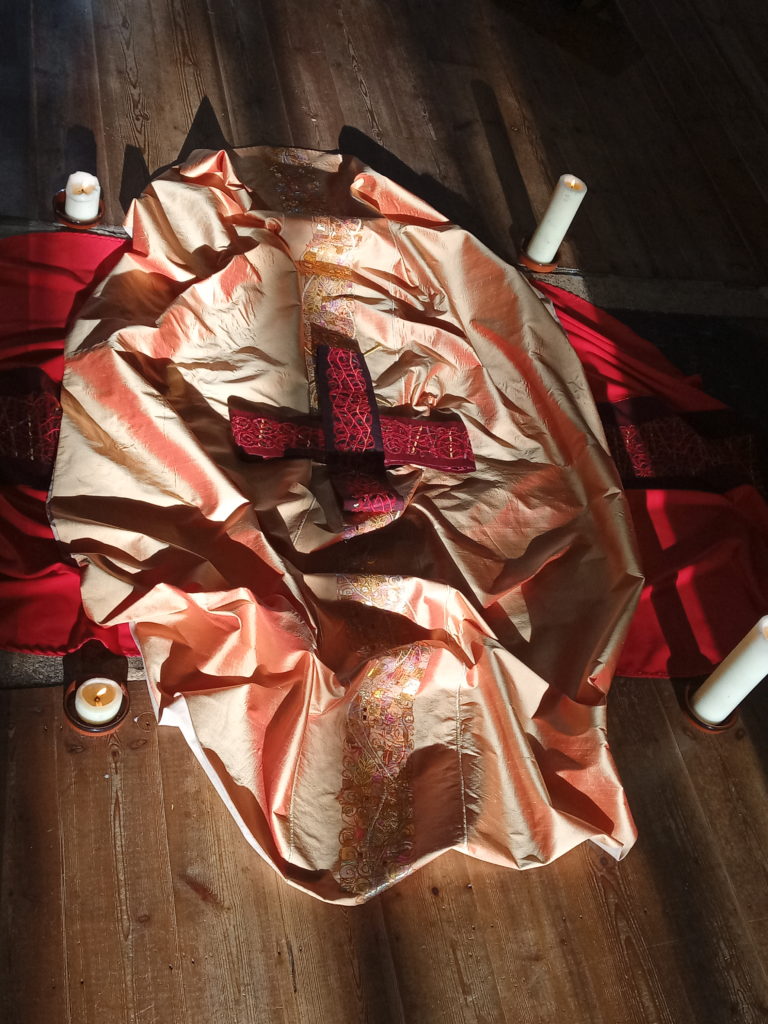When you know a story well, on second reading, the frightening and confusing elements fade into the background because you know how it’s going to turn out. The immediacy is lost – you know what’s coming, whether it’s good or bad. Real life’s not like that and just now, Covid-19 make us painfully aware that we do not “know” what is going to happen next. Nor can we put this particular story aside – it’s ours, and even though this is version 3 of Lockdown, we cannot shake off its challenges or ignore our fears, simply because we’ve been through it twice before.
Christians have just celebrated Christmas and are in the season of Epiphany. The stories of this season tell us of “God with us”, part of humanity, and they promise the revelation of God’s love to each one of us, regardless of all our differences and unworthiness. Can these frequently recounted passages from Scripture help us now, during a pandemic? Can they awaken or reawaken our sense of God’s presence in our daily lives and in our world? Can they help us tell the story of God’s love to each other?
Today’s readings certainly get off to exciting starts – we are reading from the first words of the Bible in our Genesis passage and from the very first words of Mark’s Gospel. The context of both passages is not entirely reassuring, though. In Genesis, the earth is a “formless void” and there is profound darkness. God’s spirit sweeps across waters in which earth seems suspended or drowned. Mark’s Gospel begins in the Wilderness with a lone, maverick proclaiming “a baptism of repentance for the forgiveness of sins”. John’s dress and diet are just as wild as the rest of him, but needy people, in despair about the state of their world, are flocking out to him in droves. At Jesus’ baptism, as water closes over his head, the heavens are torn apart. Neither description is without its dangerous and disturbing edge.
Yet, what comes out of both passages is the loud assertion of God’s presence – all the time, from beginning to end. God is in control of the disturbing elements in both stories. In Genesis, God creates light and the balance between night and day. Throughout this creation story, God is creating what is best for the universe, earth, creatures, and humans. What’s more, from the start, God delights in this creation. In the Gospel, Mark presents us with John the Baptist, God’s chosen messenger, foretold by the prophets of old. This is Mark’s first hint that everyone is called to proclaim God’s love, in every age and time. John the Baptist’s words create suspense about the imminent coming of someone who will demonstrate God’s presence more effectively than all the prophets who have ever been – once again, as always, God is creating what is best for his world. As Jesus emerges from the water, he is affirmed by God’s Spirit, coming down with the white brightness of a dove and, once more, God rejoices in what he has made, describing Jesus as his beloved son. God is there, in Jesus, the man; just as God was there for Mary and Joseph, the shepherds and Magi – in Jesus, the baby in the manger. God is there, at every twist and turn, and sheds his light on the darkest, formless places in our lives.
Throughout today’s readings, love is proclaimed – love, making things come into being, love, seeking good things to give and love, meeting the deepest needs of those with whom it engages. Mark is convinced that this is the love of God, fully revealed in a human being, in his Son, Jesus. As the story of Jesus unfolds, so we learn to recognise and rejoice in God’s love brought to us by the loving service of others, and so, too, we know that we are called to carry, God’s light into today’s dark and formless places.

